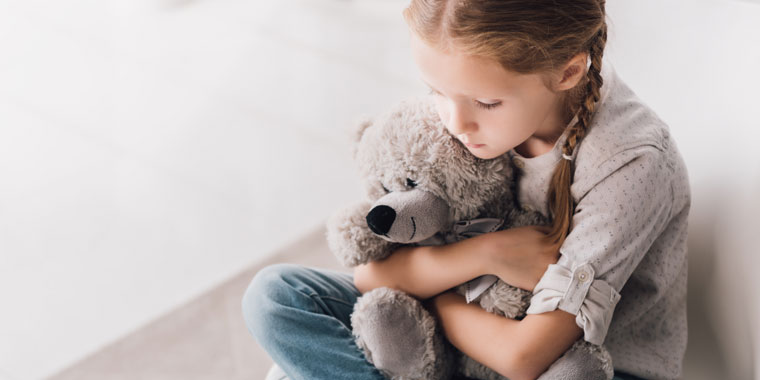Panel Recommends Screening Children For Anxiety

Answer a few questions and we'll provide you with a list of primary care providers that best fit your needs.
A panel of experts from the U.S. Preventive Task Force (USPTF) is recommending screening all children ages 8 to 18 for anxiety. At a time when mental health issues among children are escalating, the goal is to identify and treat children with anxiety before symptoms worsen.
Premier Health Now asked nurse practitioner Kevin Baker, FNP, to weigh in on what is already being done to address anxiety in children and what more can be done.
“Typically, we ask age-appropriate screening questions during an annual well-child exam,” Baker says. “If there’s an acute concern, we ask more questions and take appropriate steps to help the child and make referrals as needed.”
Baker says changes to children’s lives brought on by the pandemic – disrupted routines, isolation from school and friends, and fears about getting sick or losing loved ones – all have contributed to growing anxiety among young people.
“Kids love routine,” Baker says. “Big life changes, such as the loss of a parent or grandparent, can sometimes trigger something. If parents notice any deviation from a child’s baseline, whether the change is poor appetite, poor sleep, or poor school performance, that would warrant a call to your health care provider.”
Health care providers may use formalized questionnaires and their own criteria to evaluate children. Among the positive and negative things to consider, he says, are:
- A child’s social interactions and whether he has a group of friends or close relationships
- Enjoyment of school and performance in school
- Engagement and eye contact with others
- Attitude and behavior toward parents
- Problems with getting to sleep or sleeping too much
- Loss of appetite or frequent complaints of stomachache
Baker notes that well-child exams also provide an opportunity to perform depression screenings (as recommended by the USPTF for ages 12 and up) and suicide screenings, if indicated.
Treatment Options
Treatment options for anxiety include cognitive-behavioral therapy, also called talk therapy.
Baker says medication is available for severe anxiety, but “we want to avoid jumping to prescribing medications right away. If we can catch anxiety early, it’s much easier to treat. I have had quite a few patients who have responded well to talk therapy.”
He says one of the biggest things parents can do to help children cope with stress and anxiety in their lives is to keep open lines of communication.
“Make sure they know they can come to you. Being honest with children is important. My children are 7 and 10, and I can see when they are worried about something. I try to answer their questions.”
Learn more about ways to support your teen in counseling. Use this self-test for anxiety.
Answer a few questions and we'll provide you with a list of primary care providers that best fit your needs.
Source: Kevin Baker, FNP, Premier Health Rheumatology; npr.com




